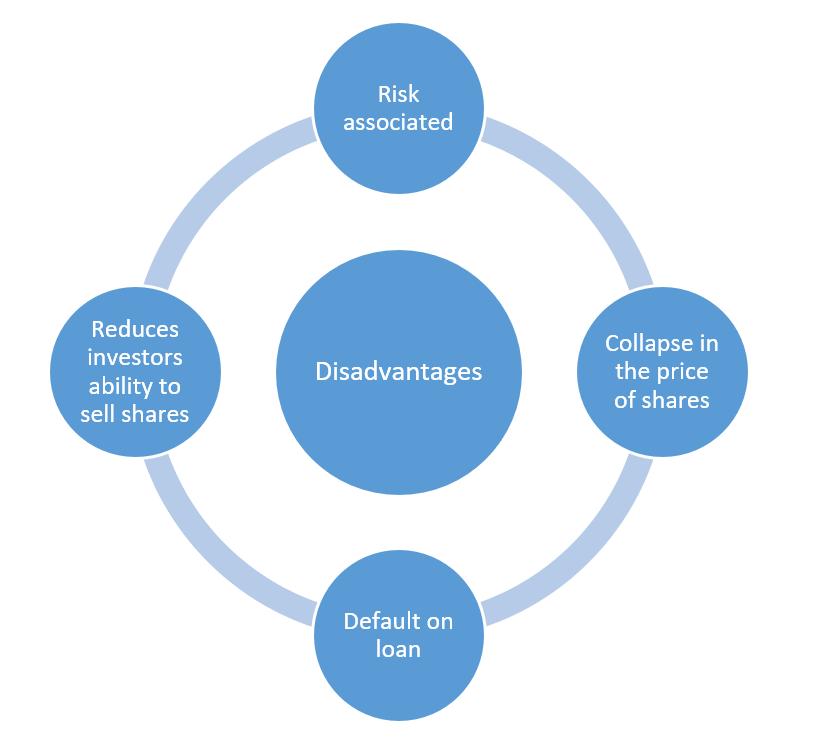- Shareholders these days often pledge their shares as collateral to secure loans.
- This practice is becoming more popular as companies seek to raise funds for expansion and other activities.
What is pledging shares?
- Pledging of shares is an arrangement in which the promoters of the company pledge their shares as collateral to secure a loan or meet their financial requirements.
- A pledge in stock will mean taking a loan against the securities of the company.
- This arrangement is for companies where investors tend to hold several shares.
- The borrower will retain ownership of these stocks and will receive dividends, interest, and capital gains on these shares.
- All the fluctuations in the market value of the pledged shares will change the value of the collateral.
- Promoters should maintain the minimum collateral value as agreed upon in the contract.
- If the value of the share falls below the agreed amount, the borrower will have to pay cash or make up for the shortfall.
- Banks and lenders might sell these shares in the open market if the borrower fails to do so.
How does the pledging of shares work?
- Investors mainly use pledging shares to meet their financial needs by providing them as collateral.
- This practice is common among investors who have high-value shares.
- As the market fluctuates, the collateral and the share value will also fluctuate.
- Also, pledging shares will help investors avoid missing out on trading opportunities due to a lack of available cash.
Why do promoters pledge shares?
- Promoters will pledge shares as the last resort to meet various financial needs.
- This way of raising funds is considered safer than borrowing.
- If promoters have pledged their shares, they might have exhausted all the fund-raising options.
- The main reason for the pledging of shares is the economic slowdown.
What is a haircut?
- A haircut margin will protect the lender's interest when pledging the shares.
- The main difference between the actual and collateral value of the shares is known as the haircut margin.
- The lender of the firm will utilize the haircut margin as a precaution against the fluctuating nature of the market.
- If the value of the share decreases abruptly, the lender might experience a significant loss if they fail to maintain the haircut percentage.
Advantages and disadvantages of pledging shares:
Pledging of shares has the following advantages:

- Pledging will enable an investor to obtain a secure loan from the lender against its shares, which typically have low-interest rates as compared to all unsecured loans.
- The use of the pledging shares as collateral will give you the ability to access extra funds for various financial purposes, like margin for trading or meeting other requirements.
- Pledging shares will also not attract tax liability.
- Borrowers are not supposed to sell their shares, which tends to mean that if the market rises, the investment value will also increase. Also, borrowers can have additional cash without selling their shares.
- Borrowers can have several other advantages, such as dividend income, that will remain unaffected.
You can also read: How to create your Stock Portfolio?
Pledging shares has the following disadvantages:

- One of the major disadvantages of pledging is the risk associated with it. If the borrower fails to repay the loan, the lender can sell the shares in the market to recover the amount owned.
- The sale of shares by the lender to high-net-worth individuals may lead to a further collapse in the price of the shares, which in turn will affect the other shareholders.
- If the promoter of the company defaults on a loan pledged as collateral, then this can leave a negative impression on the company and will also negatively impact share prices for extended periods.
- Pledging shares will reduce the ability of the investors to sell those shares in the market or to take advantage of price appreciation.
Conclusion
- Pledging shares refers to using your shares as collateral to obtain loans.
- Pledging shares can help investors trade high volumes, as it will allow for a higher margin.
Frequently Asked Questions (FAQs)
Q1. What is the pledging of shares?
Pledging shares means using your shares as collateral to secure or obtain loans.
Q2. Is there any interest in pledged shares?
No, there are no extra charges or interest rates on pledged shares.
Q3. Can you get a dividend on the pledged shares?
Yes, you will get the dividend on the shares you pledged.
Q4. What is the minimum pledge amount?
The minimum pledge amount is Rs. 50,000.
Q5. Can you buy stocks from the pledge margin?
Yes, once you pledge, the broker will give you the capital to either trade or invest in the stock market.
About Us
Nifty Trading Academy is your one-stop destination for stock market training. We offer informative blogs and engaging lectures to give you a well-rounded education. Dive into our blogs and consider joining our academy to become a confident stock market trader.
